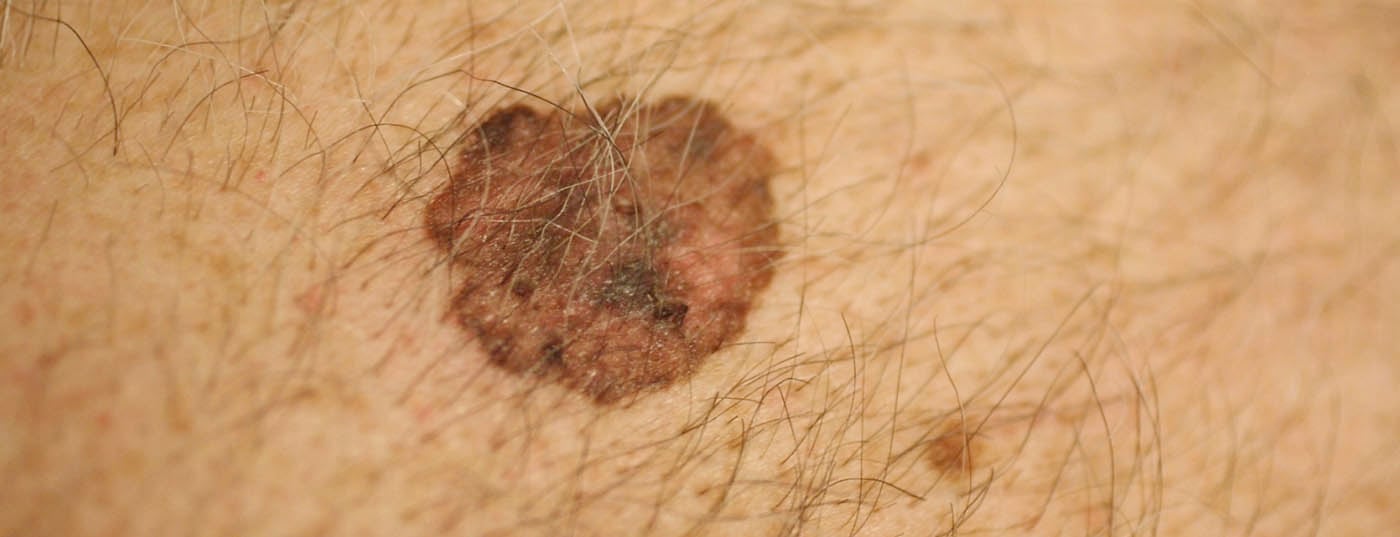According to current study data, more than half of the patients who received adjuvant treatment with the anti-PD-1 antibody were relapse-free after four years. This is further confirmation of the track record of this therapeutic option in the treatment of advanced stage melanocytic tumors with or without BRAF mutation.
There have been many advances in the field of melanocytic tumor treatment options over the past decade. Previously, chemotherapy was the only treatment available for patients with metastatic melanoma, which usually resulted in only a minor and short-term response [1]. Nowadays, current clinical standards for immunotherapy or targeted therapy in unresectable metastatic melanoma are PD-1 blocking antibodies, the combination of the PD-1 inhibitor nivolumab and the CTLA-4 inhibitor ipilimumab, and the combination of BRAF and MEK inhibitors [2]. These treatment options have resulted in a significant improvement in the long-term survival of advanced stage patients.
Checkpoint inhibitors are effective regardless of BRAF mutation status
Only about 40-50% of all patients with melanoma have an appropriately blockable BRAF mutation [3]. Immune checkpoint inhibitors are available as a treatment option for melanoma patients regardless of mutation status. Recent long-term data on immune checkpoint inhibitors are promising. Significantly improved survival rates were achieved with the combination of ipilimumab and nivolumab in patients with unresectable distant metastasis compared with previous treatment options. Both the EADO/EORTC guidelines and the current ESMO guidelines recommend immunotherapy with checkpoint inhibitors as first-line therapy for metastatic melanoma [4,5]. Also, in the adjuvant setting after complete surgery for locoregional metastasis, the PD-1 antibodies nivolumab and pembrolizumab show approximately a halving of the relapse rate so that distant metastasis does not occur.
CheckMate 238 – impressive 4-year data on nivolumab
PD-1 inhibitors can be used adjuvantly in advanced stage III or IV malignant melanoma. In 2018, nivolumab was approved by the EMA as an adjuvant therapy. The primary goal of adjuvant therapy is to prolong overall survival. However, since the benefit of such therapy can only be demonstrated after several years, recurrence-free survival has been established as another endpoint. The CheckMate 238 trial (review 1) demonstrated the superiority of adjuvant therapy with nivolumab compared with ipilimumab in stages IIIB/C and IV [6]. This showed significantly improved relapse-free survival (RFS) in the nivolumab arm: 70% vs. 60% were relapse-free at 12 months, 66% vs. 53% at 18 months, and 63% vs. 50% at 24 months. Relapse-free survival at 36 months was 58% with nivolumab vs. 45% with ipilimumab; in addition, toxicity was significantly lower compared with ipilimumab, in particular, fewer grade 3-4 adverse events occurred (14.4% vs. 45.9%) [7].

The 4-year data from the CheckMate 238 trial published in 2020 were also favorable [8]. The superiority of nivolumab in terms of relapse-free survival (RFS) compared with ipilumab persisted over this period. At 4 years, the RFS with nivolumab was 51.7% (95% CI; 46.8-56.3) compared with 41.2% (36.4-45.9) with ipilimumab (hazard ratio 0.71; 95% CI; 0.60-0.86; p=0.0003). Overall survival (OS) at 4 years was 77.9% (95% CI; 73.7-81.5) in the nivolumab group and 76.6% (72.2-80.3) in the ipilimumab group (HR 0.87; 95% CI; 0.66-1.14; p=0.31).
IMMUNED Study – Interim Results of Combination Treatment
In this phase II study, 167 stage IV patients after complete resection without evidence of recent metastasis received nivolumab 3 mg/kg bw or nivolumab 1 mg/kg bw in combination with ipilimumab 3 mg/kg bw for four administrations followed by nivolumab 3 mg/kg bw, and a third group received placebo [9]. At 24 months, relapse-free survival was 70% in the combination treatment, 42% in the nivolumab group, and 14% with placebo.
Literature:
- Ugurel S, et al: Survival of patients with advanced metastatic melanoma: the impact of novel therapies – update 2017. Eur J Cancer 2017; 83: 247-257.
- Hoeller C: Melanoma: Open questions of current therapy standards are successively addressed. Compass Oncol 2020; 7: 117-118.
- Schadendorf D, et al: Lancet 2018; 392: 971-984.
- Garbe C, et al. : Eur J Cancer 2020; 126: 159-177.
- Michielin O, et al: Cutaneous melanoma: ESMO Clinical Practice Guidelines for diagnosis, treatment and follow-updagger. Ann Oncol 2019; 30(12): 1884-1901.
- Jeffrey S, et al: Adjuvant therapy with nivolumab (NIVO) versus ipilimumab (IPI) after complete resection of stage III/IV melanoma: updated results from a phase III trial (CheckMate 238). J Clin Oncol 2018; 36(15): 9502.
- Lamos C, Hunger RE. Checkpoint inhibitors-indication and use in melanoma patients [Checkpoint inhibitors-indications and application in melanoma patients]. Z Rheumatol 2020;79(8): 818-825.
- Ascierto PA, et al: Adjuvant nivolumab versus ipilimumab in resected stage IIIB-C and stage IV melanoma (CheckMate 238): 4-year results from a multicentre, double-blind, randomised, controlled, phase 3 trial. The Lancet – Oncology 2020; 21(11): 1465-1477.
- Zaremba A, et al: Immunotherapy in malignant melanoma. Internist 2020; 61, 669-675.
- Clinicaltrials.gov: https://clinicaltrials.gov/ct2/show/NCT02388906, (last accessed 04/07/2021).
DERMATOLOGY PRACTICE 2021; 31(2): 40











